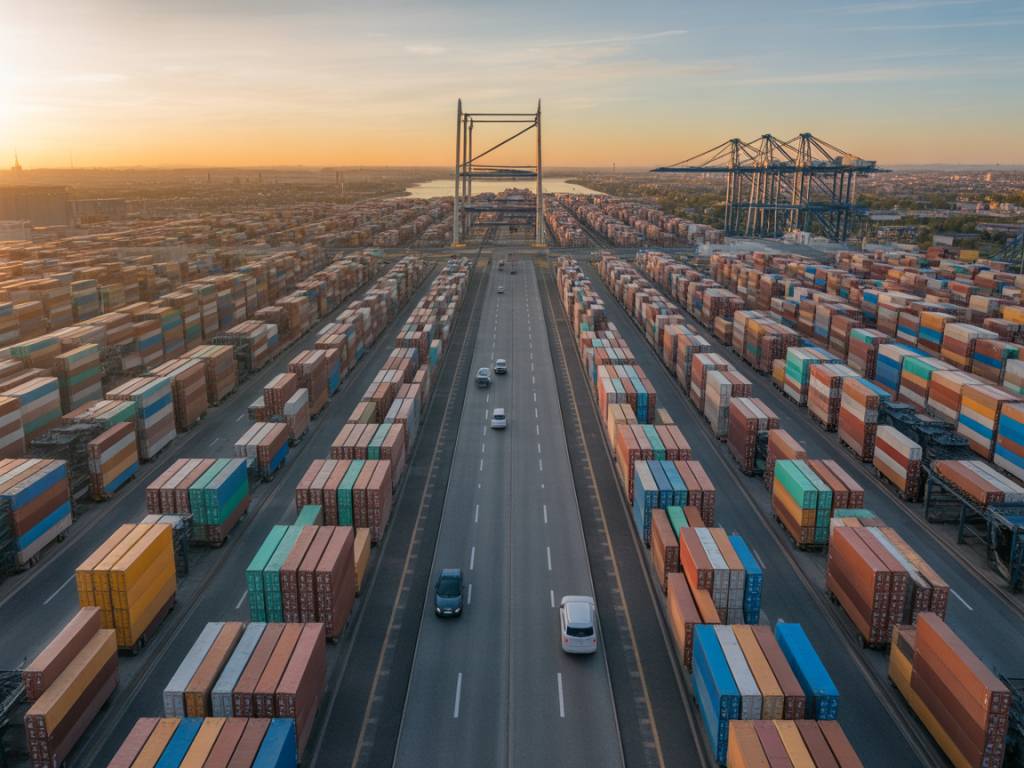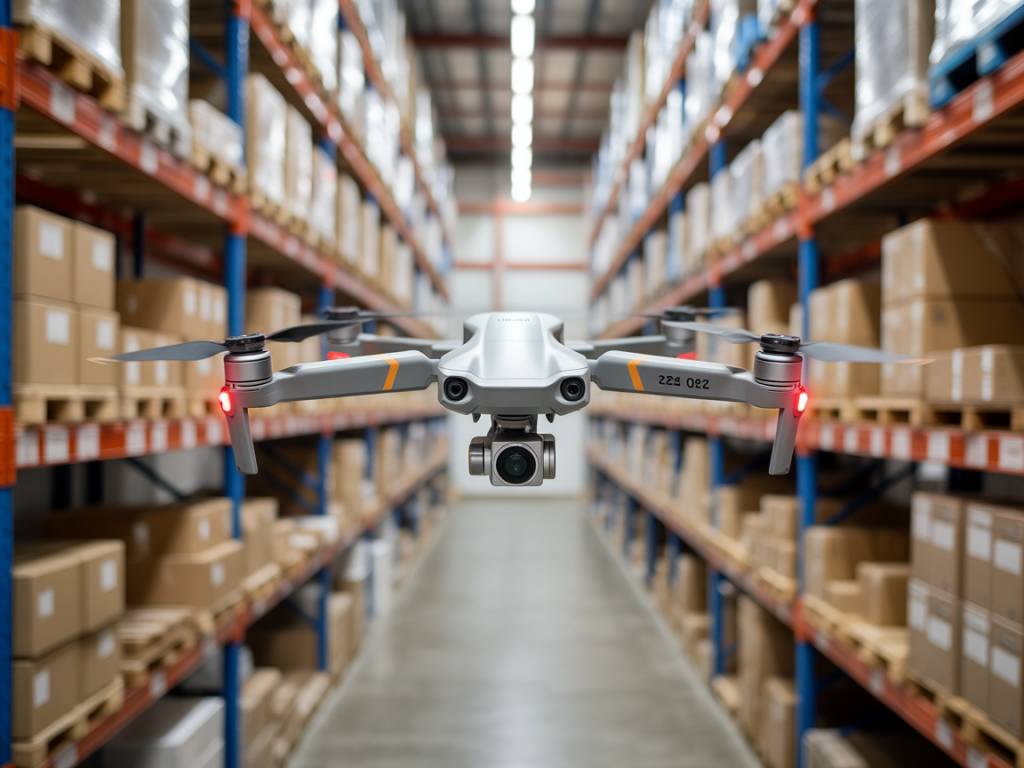The Invisible Threat: Why Cybersecurity Is Now Critical for Logistics Firms
In the age of digitized supply chains, GPS-tracked fleets, and cloud-based warehouse management systems, logistics has never been smarter. But smarter often means more connected—and with connection comes vulnerability. Today, cybersecurity is no longer just an IT concern. It’s a boardroom issue, a bottom-line issue, and above all, a survival issue for logistics firms.
From the moment a shipment is scheduled to the point of last-mile delivery, sensitive data is produced, transmitted, and stored. This includes everything from customer addresses and inventory numbers to proprietary routing algorithms and supplier contracts. As logistics firms digitalize their operations at breakneck speed, the attack surface for cybercriminals expands accordingly.
Not If, But When: A Surge in Cyberattacks
Let’s be blunt: logistics firms are increasingly in the crosshairs of cybercriminals. According to a 2023 report by IBM Security, the transportation and logistics sector saw a 35% increase in cyberattacks over the previous year, with ransomware accounting for nearly half of these incidents.
The infamous case of the 2017 NotPetya attack on Maersk stands as a cautionary tale. The malware, originally targeting Ukrainian systems, unknowingly crippled Maersk’s logistics operations worldwide, forcing a complete reinstallation of its IT infrastructure. The company estimated losses upwards of $300 million. Fast forward to 2022, Expeditors International fell victim to a digital assault that halted operations for several weeks, disrupting global freight flows and highlighting the industry’s fragile digital underbelly.
Why Logistics Firms Are Prime Targets
Logistics operations are time-sensitive, complex, and heavily reliant on third-party providers. That makes them particularly attractive to attackers looking for quick payoffs.
- High-value transactions: Freight companies handle vast sums and sensitive trade data daily, making them lucrative targets for financially motivated hackers.
- High dependency on uptime: With narrow delivery windows and real-time tracking at stake, even minor IT disruptions can trigger massive financial and reputational losses.
- Supply chain interconnectivity: Collaboration with partners and clients involves the constant exchange of data, creating multiple potential entry points for cyberthreats.
- Legacy systems: Many firms still run outdated software or hardware unable to cope with today’s security standards.
In short, logistics firms often sit on a perfect storm of risk factors: valuable data, weak defenses, and a business model where every second counts.
Common Attack Vectors in the Logistics Sector
Cybercriminals use a mix of traditional methods and sector-specific tactics to breach logistics systems. Some of the most prevalent include:
- Phishing and social engineering: Employees are often tricked into revealing login credentials or installing malware through deceptive emails that mimic freight documents, invoices, or internal communications.
- Ransomware: Hackers encrypt vital files and demand payment to release them, often bringing operations to a standstill.
- Third-party vulnerabilities: Attackers gain access through weak points in suppliers’ or partners’ systems, then move laterally into the core networks.
- IoT and telematics exploitation: Connected devices, such as GPS trackers or sensor-equipped containers, provide backdoors if not properly secured.
- Cloud and API breaches: Poorly secured cloud environments and open APIs used for integration can expose sensitive logistics data to unauthorized access.
The Real Costs: Beyond the Ransom
Cyberattacks don’t only translate into IT repair bills or ransom payments. The broader implications often outweigh the immediate financial loss:
- Operational disruption: Downtime resulting from an attack can halt shipments and damage service-level agreements, leading to client attrition.
- Reputational damage: Clients trust logistics partners with their products and data. A breach compromises that trust, sometimes irreparably.
- Regulatory penalties: Failing to comply with data protection laws like the GDPR or CCPA can result in hefty fines.
- Insurance repercussions: Rising claims linked to cyber incidents are prompting insurers to limit coverage or raise premiums for logistics firms.
Simply put, the cost of inaction is rising fast. A reactive cybersecurity policy is no longer acceptable. Logistics businesses need to think proactively, comprehensively, and continuously.
Building Resilience: A Cybersecurity Roadmap for Logistics
So how can logistics firms navigate this evolving threat landscape? A few key strategies stand out:
- Board-level commitment: Cyber risk must be treated as a strategic priority. That means allocating budget, appointing CISOs, and including cybersecurity on leadership agendas.
- Employee training: Regular awareness programs can prevent human error, currently the main entry point for hackers. Freight operators and warehouse staff need to be just as educated as back-office employees.
- Zero-trust architecture: Implement policies that verify every user and device, inside and outside the organization. Assume nothing is safe by default.
- Segmented networks: Isolate critical operations like fleet management from less sensitive systems to limit lateral movement during intrusions.
- Incident response planning: Develop and regularly test contingency plans. Who does what? Which systems can run offline? These should be known before a breach occurs, not after.
- Third-party risk audits: Vet suppliers and logistics partners for their cybersecurity hygiene. Your defense is only as strong as your weakest link.
It’s also worth noting the increasing role of cybersecurity certifications—such as ISO/IEC 27001 or TISAX—used to assess partners during procurement decisions. Being able to show verifiable cyber policies can be a commercial asset.
The Role of Technology and Innovation
Fortunately, the same wave of digital transformation that increases risk can also offer protection. Emerging technologies are rising to meet the challenge:
- AI-based threat detection: Machine learning systems can analyze data flows in real time, identifying anomalies before they escalate.
- Blockchain for supply chain integrity: Immutable ledgers can monitor data trail authenticity and detect tampering in freight documents or cargo tracking logs.
- Secure APIs for data-sharing: Cryptographically secured interfaces allow trusted system integration without exposing unnecessary data.
- Automated patch management: Tools that keep all devices, from handheld scanners to truck dashboards, up to date without manual intervention.
Investments in these areas not only enhance protection—they can also serve operational excellence, creating dual value for logistics firms seeking competitive advantage.
The Human Factor Remains Central
Despite the array of cutting-edge tools, cybersecurity success still hinges on people. It’s the customs broker who doesn’t click the PDF attachment that looks just a bit off. It’s the shift manager who spots a strange IP address when logging into the yard control system. And it’s the CEO who refuses to pay the ransom and activates the crisis management plan instead.
Firms like DHL, DB Schenker, and Kuehne+Nagel have publicly acknowledged the imperative to build a cybersecurity-aware culture across all layers of their operations. That kind of shift doesn’t happen overnight, but it starts with intentional leadership, education, and reinforcement.
Final Thoughts: Logistics Security Is Business Security
The age of digital logistics is here to stay. With it comes immense opportunity—but also amplified exposure to cyber threats. For logistics firms, the question is no longer whether to invest in cybersecurity, but how fast and how extensively they can do it.
Businesses that fail to treat cybersecurity as a core operational pillar risk not just data breaches, but operational paralysis and reputational collapse. Meanwhile, those that embrace resilient practices not only secure their operations—but signal to clients and partners that they are providers worth trusting in an ever-more complex and volatile marketplace.
In the high-stakes race of modern logistics, cybersecurity isn’t a detour. It’s the infrastructure beneath the road.




